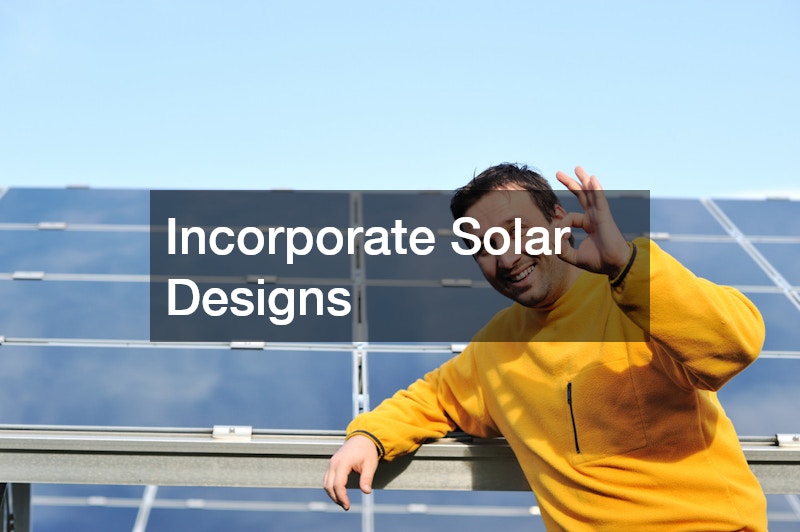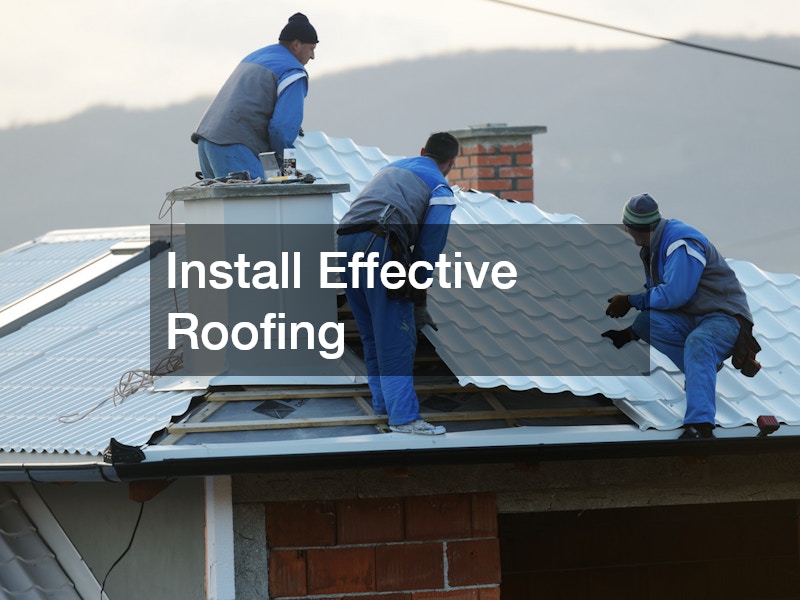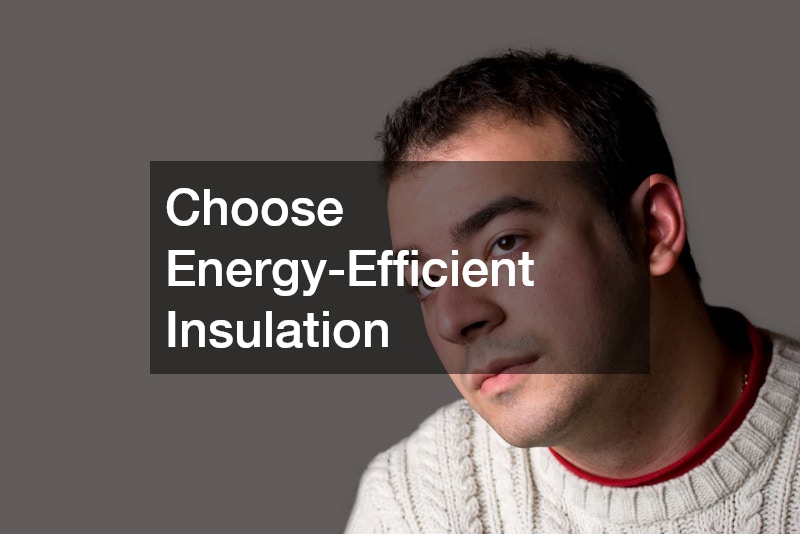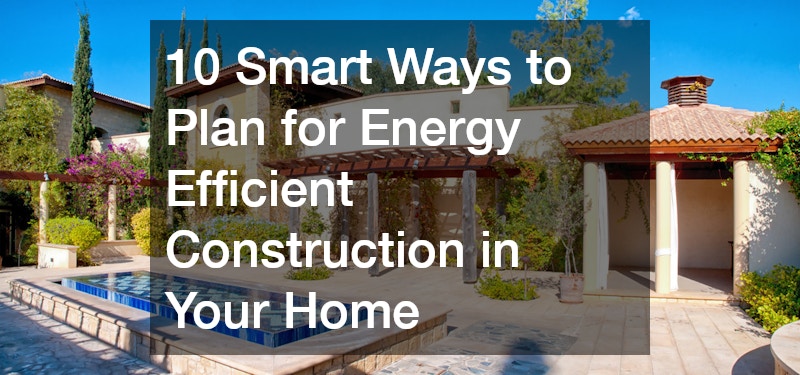In today’s rapidly changing world, energy efficient construction has become a top priority for both homeowners and businesses. As energy costs continue to rise and environmental concerns grow, many people are looking for ways to make their homes more energy-efficient. This not only helps in reducing the cost of energy bills but also plays a significant role in minimizing our carbon footprint. The goal of this article is to provide detailed insights into various techniques and considerations that can make construction efforts more energy-efficient. Whether you are planning a new home, renovating an existing one, or just looking for small tweaks to improve your energy usage, this comprehensive guide has something for you. We will discuss topics ranging from solar designs to the installation of high-performance windows and from sealing air leaks to choosing energy-efficient appliances and lighting. By the end of this article, you will have a thorough understanding of how to make your home more energy-efficient and environmentally friendly.
Incorporate Solar Designs

One of the most effective ways to achieve energy efficient construction is by incorporating solar designs. A reputable solar company can help you install photovoltaic panels designed to capture sun energy and convert it into electricity. These systems not only reduce your reliance on fossil fuels but can also significantly lower your energy bills. By harnessing the natural energy from the sun, solar panels serve as a sustainable alternative to traditional electricity sources.
Additionally, implementing passive solar design techniques allows homes to make the most out of natural daylight and warmth. Strategic placement of windows and the use of materials that absorb and slowly release solar energy can keep your home comfortable throughout the year. Consulting with an energy expert or a solar company can provide guidance on how to integrate these designs into your construction plans effectively.
The integration of solar designs is not only energy-efficient but also adds value to your home. The initial investment may be higher, but the long-term savings on energy costs often outweigh the upfront expenses. Moreover, with the increasing focus on green building practices, homes with solar designs are increasingly in demand in the real estate market.
Incorporating solar designs into construction can also make you eligible for various incentives and rebates offered by government programs. Many regions provide tax credits, rebates, and other financial incentives for installing solar systems, which can help offset installation costs. These incentives make solar installations more accessible and enhance the return on investment for energy-efficient homes. Researching available programs or consulting with your solar company can help you make the most of these benefits.
Moreover, solar designs contribute to reducing the carbon footprint of your property, making it a more eco-friendly option in the long run. By cutting down on emissions associated with traditional energy sources, solar systems support a cleaner environment and help mitigate climate change. This aligns with a growing global movement toward sustainable practices, allowing homeowners to participate in meaningful environmental action while enjoying the comfort and efficiency of a well-designed, solar-integrated home.
Install High-Performance Windows
High-performance windows are essential for energy efficient construction. Opting for replacement window services that offer energy-efficient windows can drastically improve your home’s insulation, preventing heat loss during winter and keeping the home cool during summer. These windows are often double or triple-glazed with an inert gas like argon between the panes to enhance their insulating properties.
A good window and door company can provide insights into window options that best meet your specific needs. From Low-E coatings that reflect heat to frames made from energy-efficient materials, the options are numerous. Installing such windows reduces the need for constant heating or cooling, thereby lowering energy consumption.
High-performance windows not only contribute to energy efficiency but also improve the overall comfort and aesthetics of your home. They reduce external noise, enhance security, and allow more natural light to enter your living spaces. These advantages make them a worthy investment for anyone focused on sustainable and energy-efficient construction.
Seal Air Leaks
Sealing air leaks is another critical aspect of energy efficient construction. Air leaks around windows, doors, and other openings can result in significant energy loss, making your heating and cooling systems work harder than necessary. Engaging with a reliable window and door company can help you identify and seal these leaks effectively.
Additionally, using weatherstripping and caulking around doors and windows can significantly reduce drafts and improve overall energy efficiency. A comprehensive assessment of your home’s envelope will help you pinpoint where air leaks are most likely to occur. These small yet impactful adjustments can lead to substantial energy savings in the long run.
By ensuring that your home is well-sealed, you not only improve energy efficiency but also enhance indoor air quality and overall comfort. It creates a more stable indoor environment, reducing the strain on heating and cooling systems and ultimately contributing to a more sustainable home.
leaks, as it helps maintain consistent indoor temperatures by reducing heat transfer through walls, floors, and ceilings. Proper insulation works in tandem with air sealing to prevent heat loss during colder months and keep cool air inside during warmer months, maximizing the efficiency of your HVAC system. With the right combination of insulation and air-sealing measures, homeowners can experience even greater energy savings and a more comfortable living environment year-round.
Install Effective Roofing

The type of roofing you choose can have a significant impact on energy efficient construction. One popular option is a metal roof, which is known for its durability and energy-efficient properties. Metal roofs reflect sunlight, reducing the amount of heat absorbed by your home and thus lowering cooling costs in hot climates.
A well-installed metal roof can also improve the home’s insulation, helping to maintain a consistent indoor temperature throughout the year. Additionally, metal roofs are often made from recycled materials, adding another layer of environmental benefit. The longevity and low maintenance requirements make them a cost-effective option in the long term.
Working with a knowledgeable roofing contractor can ensure that your new roof is installed correctly and that it meets all the necessary energy efficiency standards. By investing in high-quality, energy-efficient roofing materials, you contribute significantly to the overall sustainability of your home.
Invest in Energy-Efficient Appliances
Choosing energy-efficient appliances is another cornerstone of energy efficient construction. Modern appliances consume far less energy than their older counterparts, making this an easy yet highly effective way to reduce your household’s energy consumption. Appliance service providers can recommend the best energy-efficient options based on your needs and budget.
Look for appliances with the Energy Star label, which signifies that they meet stringent energy efficiency guidelines set by the government. From refrigerators and ovens to washing machines and dishwashers, selecting Energy Star rated appliances ensures you are choosing products designed to minimize energy usage without compromising performance.
In addition to lowering your energy bills, energy-efficient appliances also reduce greenhouse gas emissions, making them a smart choice for environmentally conscious homeowners. Investing in high-quality, energy-efficient appliances is a significant step toward creating a more sustainable and energy-efficient home.
Use Energy-Efficient Lighting
Switching to energy-efficient lighting is a simple yet impactful way to contribute to energy efficient construction. LED bulbs, for instance, consume significantly less energy compared to traditional incandescent bulbs and have a much longer lifespan. A home renovation company can help you integrate energy-efficient lighting solutions throughout your home.
In addition to LED bulbs, consider incorporating smart lighting systems that can be controlled remotely via smartphones or home automation systems. These systems allow you to customize lighting schedules and adjust brightness levels, further enhancing energy efficiency. Automated lighting can also provide additional security benefits by deterring potential intruders when you are away from home.
By adopting energy-efficient lighting, you not only reduce your energy consumption but also improve the overall ambiance of your living spaces. Proper lighting can enhance the aesthetic appeal and functionality of your home, making it a more pleasant and sustainable place to live.
Install a Smart Thermostat

A smart thermostat is a must-have for any energy efficient construction project. These innovative devices allow you to control your home’s heating and cooling systems remotely, ensuring optimal energy usage throughout the day. Local HVAC contractors can help you select and install a smart thermostat that meets your specific needs.
Smart thermostats can learn your preferences over time and automatically adjust settings to maximize energy efficiency. They can also provide detailed energy usage reports, giving you valuable insights into how to further reduce your energy consumption. Many models offer compatibility with home automation systems, allowing you to integrate them seamlessly into your existing setup. Investing in a smart thermostat can lead to significant energy savings and improved comfort in your home. By optimizing your heating and cooling systems, you can reduce your energy bills and contribute to a more sustainable lifestyle.
Utilize Tankless Water Heaters
Tankless water heaters are an excellent option for energy efficient construction. Unlike traditional water heaters that store and constantly heat large volumes of water, tankless water heaters provide hot water on demand. This not only reduces energy consumption but also eliminates the need for bulky storage tanks.
Water heater installation professionals can help you choose the right tankless water heater for your home and ensure it is installed correctly. These systems are compact, efficient, and can provide an endless supply of hot water whenever you need it. They are also less prone to leaks and other issues commonly associated with traditional water heaters. By opting for a tankless water heater, you can enjoy significant energy savings and a more reliable supply of hot water. This smart choice contributes to the overall energy efficiency of your home and enhances your comfort and convenience.
Implement Water-Saving Fixtures
Water-saving fixtures are an essential component of energy efficient construction. Faucets, showerheads, and toilets that use less water without compromising performance can significantly reduce your household’s water consumption. A reliable water treatment service can help you select and install these fixtures to maximize their benefits.
Low-flow showerheads and faucets, for example, use aerators to maintain water pressure while reducing water usage. Dual-flush toilets offer different flush options for liquid and solid waste, further conserving water. These fixtures are designed to be both efficient and user-friendly, making them an ideal choice for any energy-efficient home. Implementing water-saving fixtures not only reduces your water bills but also contributes to the conservation of this precious resource. By making conscious choices about your water usage, you can create a more sustainable and environmentally friendly home.
Choose Energy-Efficient Insulation

High-quality insulation is crucial for maintaining energy efficiency in your home. Spray foam insulation installation is one of the most effective methods for achieving a well-insulated home. This type of insulation expands to fill gaps and cracks, creating an airtight seal that prevents heat loss and improves overall energy efficiency.
In addition to spray foam, other energy-efficient insulation options include fiberglass and cellulose. Each type has its own set of advantages and can be chosen based on your specific needs and budget. A professional insulation contractor can help you determine the best option for your home and ensure it is installed correctly.
Proper insulation maintains a consistent indoor temperature, reducing the need for excessive heating and cooling. This not only lowers your energy bills but also enhances the comfort of your living spaces. Investing in energy-efficient insulation is a fundamental step toward creating a more sustainable and energy-efficient home.
Achieving energy efficient construction is not only beneficial for your wallet but also for the environment. By incorporating solar designs, installing high-performance windows, sealing air leaks, choosing effective roofing, and investing in energy-efficient appliances and lighting, you can create a home that is both comfortable and sustainable. Implementing smart thermostats, utilizing tankless water heaters, installing water-saving fixtures, and choosing high-quality insulation further contribute to your home’s energy efficiency. These steps not only reduce your energy consumption but also enhance the overall value and comfort of your home. As you embark on your energy-efficient construction journey, remember that even small changes can make a significant impact. By making informed choices and partnering with reputable service providers, you can create a home that is both eco-friendly and cost-effective. Start your journey towards energy efficiency today and enjoy the long-term benefits of a more sustainable and energy-efficient home.

